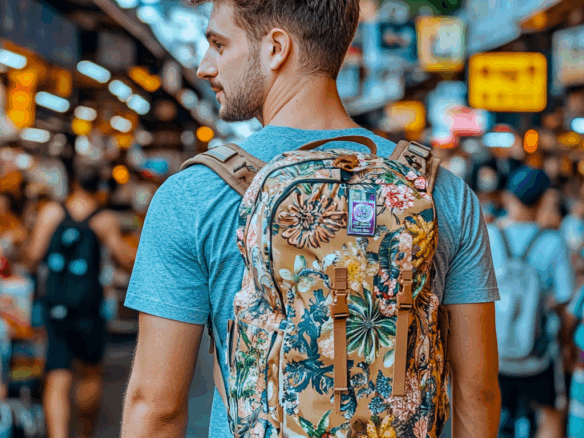Relocating to a foreign country and adjusting to life can be one of life’s most exciting challenges. Numerous initial challenges are almost assured, in addition to the multiple benefits and life lessons gained by uprooting and becoming an expatriate. You may have difficulty adjusting to a new pace of life, comprehending a new healthcare system, learning a new language, or finding out how to register for utilities.
Moving can be stressful, even more so when you have to cross oceans to get to your new home.
Here are some top tips for moving abroad if you’re concerned not only about the logistics of physically relocating your life but also about preparing and settling your whole family once you arrive:
1. Take only what you need and arrange for the shipping of the remainder.
Carry your underpants, essential clothes, appropriate documents, and toothbrush, but refrain from bringing an entire suitcase filled with books and trinkets from home. To quickly establish a sense of belonging in a new location, carry only what you need, and hire local movers for the rest of your stuff. Several foreign shipping companies can transport goods that are too large to fit on a plane these days, but their focus is on simplification and minimalism.
2. Before your trip, arrange for vaccines and paperwork.
Regardless of where you’re traveling in the country, make sure you have all of your adult vaccinations current. People wrongly believe that it makes no difference whether a country is the third world or not; however, you cannot obtain a visa unless you are fully vaccinated in some countries.
If you have allergies or are taking medicine, keeping notes is particularly beneficial. It will be prudent to maintain a record of all vaccines received since you would almost certainly need to reapply for all vaccinations in your new country. Bring copies of previous prescriptions, if necessary, but you should also inquire about the availability of your medications and how to obtain them.
3. Prepare to respond to border security inquiries.
They’ll simply be checking to see if you’re a legal immigrant and if you’ll need government assistance while you’re there. Bring your fully stamped and valid visa, proof of any employment prospects, the address of a place to stay, and a copy of your bank statement to demonstrate that you’re not destitute. Although certain areas will remain untouched, this is not a guarantee.
4. For all times, keep your identification on you.
In most cases, the only way to confirm your identity and age in a foreign country is through your passport. Bouncers are typically wary of international driver’s licenses and student identification. If your new country provides you with a means of identification, bring it with you; if not, get your passport.
5. To begin, secure a residence, a physician, and a bank account.
Making new friends and discovering a fantastic new club can wait. Get the essentials in order first: a place to stay, a local bank account, and a doctor’s contact details. Although opening a bank account can be time-consuming, conducting financial transactions is often needed when moving into a new place.
6. Preparation for culture shock is a good idea.
You and the rest of your family are most likely to experience culture shock at some point, and being prepared will assist you in adjusting. The trick is to mitigate the effect of all these changes occurring concurrently; as soon as you know where you’re headed, sit down as a family and begin learning.
Watch documentaries, read books, look up your new neighborhood on Google Maps, and absorb as much information as possible before you leave. When communicating with children, maintain a positive attitude toward the transition, emphasizing why and how your new country will help lives, and answering as many of their questions as possible.
7. Make a concerted attempt to acquire a working knowledge of the native tongue.
Unless you are already fluent in the language of your new nation, you can allocate a significant portion of your relocation plans to language learning. You will increase your sense of security and comfort in your new surroundings by communicating with the locals, no matter how simple the communication is.
Numerous countries use English as a second language, which can be highly beneficial if you are having difficulty. However, it would be best if you always begin by attempting to learn your new language; the more you use it in daily situations, the simpler it will become.
Takeaway
The heart is where the home is, and this is especially true when relocating abroad. Make an effort to make your house feel like a home, regardless of whether you live in a private apartment, a dorm room, or a shared flat. Follow the tips above to help make the moving process more manageable and make your new place feel homey as soon as you can.




